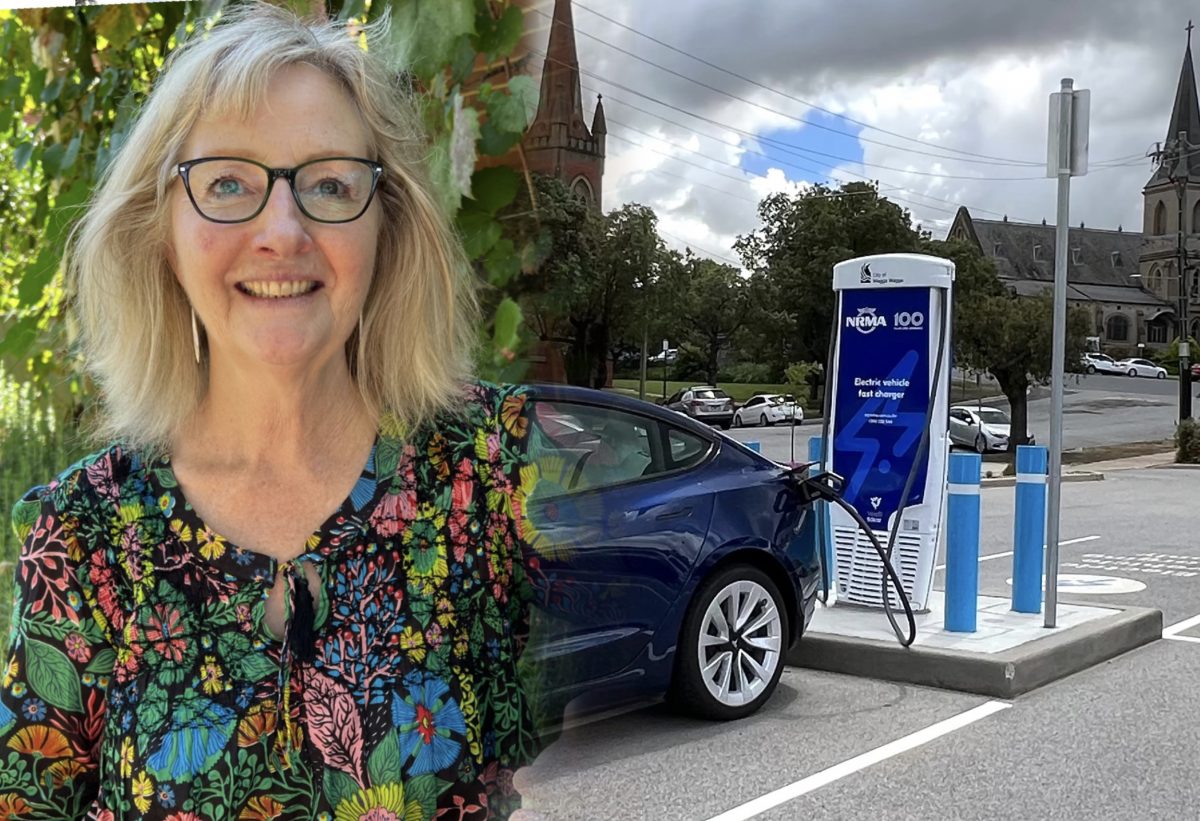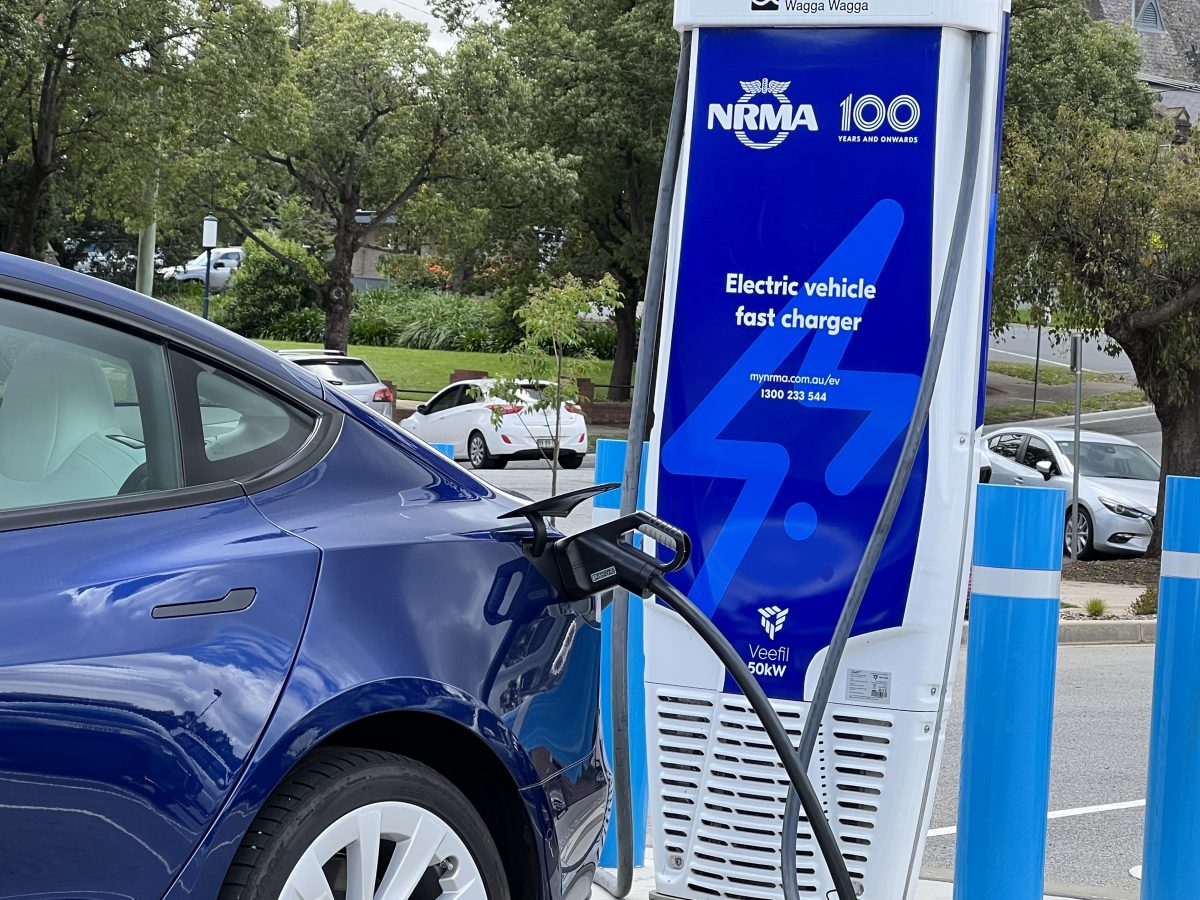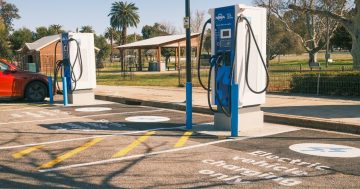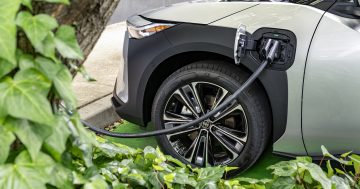
Jenny McKinnon has joined councillors from across the country in calling for more to be done to encourage EVs. Photo: Chris Roe.
Wagga’s Deputy Mayor Jenny McKinnon is among 120 councillors from across Australia who want the Federal Government to amp up the country’s access to affordable electric vehicles.
A joint statement issued by the Climate Council’s ‘Cities Power Partnership’ called on the Commonwealth to legislate mandatory fuel efficiency standards that would bring us into line with other developed countries.
“World-class fuel efficiency standards would bring more low and zero emissions vehicles to Australian shores,” the statement reads.
“This will accelerate the transition for councils – and with fleet vehicles entering the secondhand market after three to five years, this ensures communities have access to the best technology at a fair price.”
Cr McKinnon is herself an EV owner and says the technology is more than adequate for regional commuters and council fleets.
“Local governments can play a unique role in increasing the supply of affordable electric vehicles for Australians by going all-electric, but we need support from the Federal Government in the form of fuel efficiency standards,” she said.
“It’s about getting on board with the fuel efficiency standards that 80 per cent of the world has, including America and the whole of Europe.
“We’re currently in company with Turkey, Russia and Indonesia in our lack of fuel efficiency standards.”
Cr McKinnon said that improved fuel standards would stop Australia from becoming a “dumping ground for gas-guzzlers”.
“We’ve got a situation now where the cheapest electric vehicle that you can buy new is around $50,000. Overseas, it’s $18,000 to get into the electric car market,” she said.
“We need to give manufacturers that incentive.”

WWCC has received a grant to install four new EV charging stations. Photo: Chris Roe.
When a motion to introduce premium EV parking was introduced last year, it was rejected by council amid concerns over the affordability of EVs and that such a measure was premature and would favour the wealthy.
At the meeting, Cr Rod Kendall suggested that Wagga’s median annual income was around $70k per household and that even the cheapest fully electric vehicle on the market in Australia costs around two-thirds of that amount.
“The vast majority of our citizens are flat out affording a secondhand car,” he said, suggesting that putting EV-only parking in premium spots would “send the wrong message” to locals.
In February this year, Cr McKinnon challenged the development of a new service station to Wagga’s East, asking in council, “We have so many service stations, why on earth is another one being put up?”
She also asked why the development did not include plans for a charging station.
“With vehicle manufacturers having declared that they will only be producing electric vehicles from approximately 2030 onwards, was any consideration given to the idea of having maybe at least one electric vehicle charger as part of this development?”
According to Transport for NSW, Wagga currently has six locations offering a charge with more being rolled out this year.
In February, council was awarded a $23,796 grant for the installation of four new charging stations at the Visitor Information Centre, Apex Park, Bolton Park and Morrow Street.
Council has also adopted a corporate net zero emissions target by 2040 which includes the purchase of an electric vehicle as part of the fleet.
You can read the Cities Power Partnership statement here and learn more about WWCC’s net zero strategy here.









